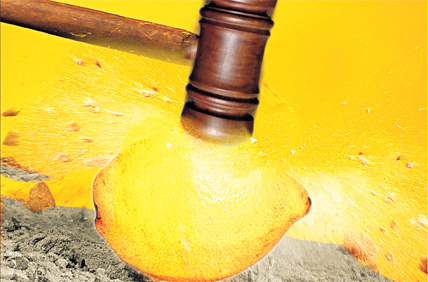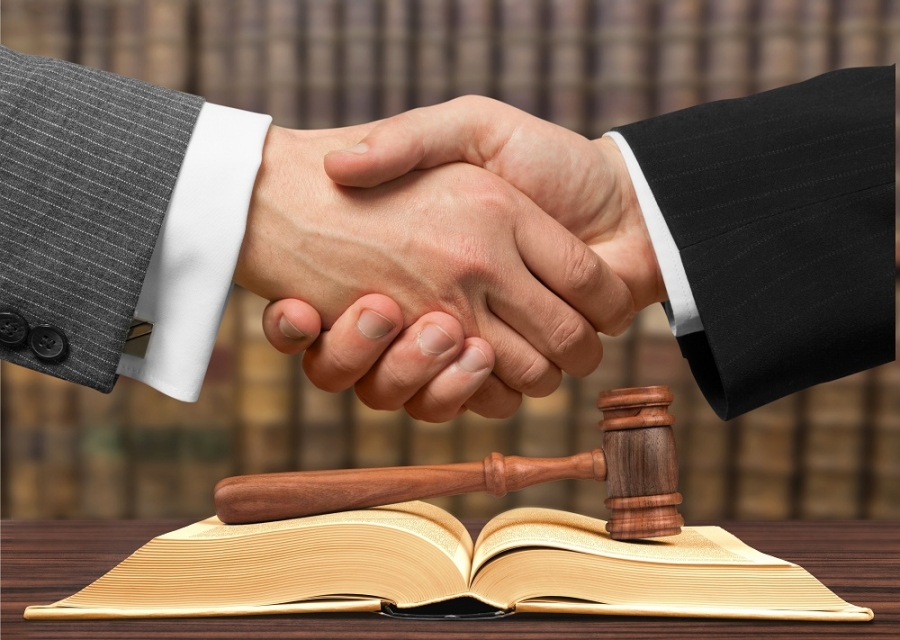Under the California lemon law, a manufacturer or seller who fails to service or repair a defective vehicle to meet warranty standards after “a reasonable number of attempts” [1] must replace it with a vehicle of equivalent value or reimburse the buyer the purchase price less a charge for usage before the discovery of the defect.
How many attempts are a “reasonable number”? After the buyer “directly notifies the manufacturer” the law presumes two attempts for a defect “likely to cause death or serious bodily injury,” [2] four for a defect less serious, and one or more if the defect keeps the vehicle out of service for a total of “more than 30 calendar days since delivery” to the buyer.
“If a qualified third-party dispute resolution process exists,” [3] however, and the seller notifies him of it in writing the buyer must submit the lemon law claim and raise or assert the presumption on reasonable number of attempts in the process first before going to court. As the California Attorney General says, “If the manufacturer maintains a state-certified arbitration program, the [buyer] must submit the warranty dispute to the arbitration program before [he] can take advantage of the presumption in court.” [4]
The California Department of Consumer Affairs certifies arbitration programs or qualifies dispute resolution processes sponsored by most but not all major vehicle manufacturers. The Better Business Bureau Auto Line decides warranty disputes for Ford and General Motors and for most British (Aston Martin, Bentley, Jaguar, Land Rover, Lotus), some German (Audi, BMW, Volkswagen), Italian (Ferrari, Lamborghini, Maserati), and most Japanese (Acura, Honda, Infiniti, Mazda, Nissan) and Korean (Hyundai, Kia) manufacturers.
The Consumer Arbitration Program — Motor Vehicles decide disputes for Porsche, the California Dispute Settlement Program for Toyota. There is no dispute resolution process or arbitration program for Chrysler, Fiat, Isuzu, Mercedes–Benz, Mitsubishi, Subaru, or Volvo.
The Department of Consumer Affairs website lists what it calls “benefits of arbitration:” [5]
It is free.
No need to hire an attorney.
Decisions are typically rendered within 40 days of the arbitration program’s receipt of your application.
So the buyer saves court costs (filing fees) but whether he needs to hire an attorney is a matter of judgment. He may represent himself in court as well as in arbitration but if the case is complicated or the proof of facts difficult he may need an attorney in either situation. It is true that arbitration usually reaches a result faster than does a judicial proceeding, and it is true that the decision “typically rendered within 40 days” is nonbinding, for if “dissatisfied with that third-party decision . . . the buyer may assert the presumption. . . in an action to enforce [his] rights” [6] in court, but these apparent benefits may mislead the unwary into overconfidence.
In any action to enforce the buyer’s rights in court “The findings and decision of a qualified third-party dispute resolution process shall be admissible in evidence,” [7] meaning that the findings of fact and conclusions of law in the previous arbitration or dispute resolution process will be before the judge hearing the buyer’s case. Many, perhaps most, judges would be tempted to take the easy way of adopting the previous findings and conclusions as their own. Buyers dissatisfied with the results of their previous processes should be prepared therefore to show legal errors as reasons for their dissatisfaction.
And there is the fact that the manufacturer or seller, having seen and heard the buyer’s case in the previous process, may be able to present better evidence and more persuasive arguments the second time around. Any buyer going to court after rejecting an arbiter’s decision should be mindful of these pitfalls.
[1] California Civil Code Section (§)1793.2(d).
[2] California Civil Code § 1793.22(b).
[3] California Civil Code § 1793.22(c).
[4] http://oag.ca.gov/consumers/general/lemon. What the attorney general says is “a state-certified arbitration program” is the same as “a qualified third-party dispute resolution process” in the language of § 1793.22(c).
[5] http://www.dca.ca.gov/acp/acpprocess/shtml.
[6] California Civil Code § 1793.22(c).
[7] California Civil Code § 1793.22(c).
This article was written by an experienced and professional California Lemon Law Attorney, visit our website to get more help.
The information you obtain at this site is not, nor is intended to be, legal advice. You should consult an attorney for advice regarding your individual situation. We invite you to contact us and welcome your calls, letters and electronic mail. Contacting us does not create an attorney-client relationship. Please do not send any confidential information to us until such time as an attorney-client relationship has been established. The results in the cases portrayed on this website were dependent on the facts of each individual case, and the results in any case will differ if based on different facts or law. They are provided for illustrative purposes only and are no guarantee, promise of representation of similar results in similar or future litigation.





